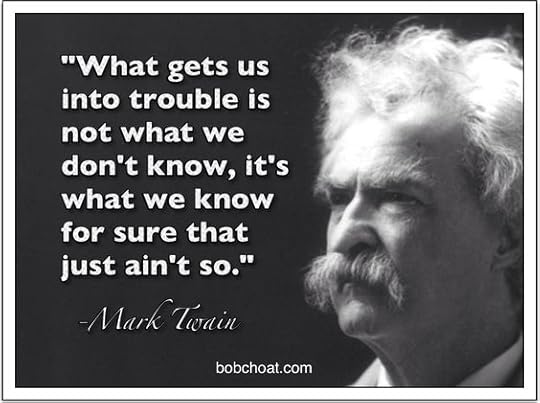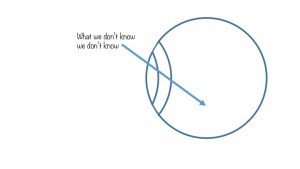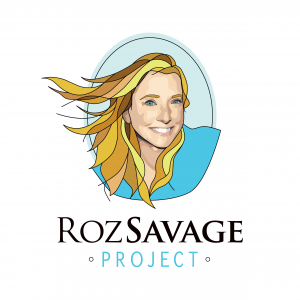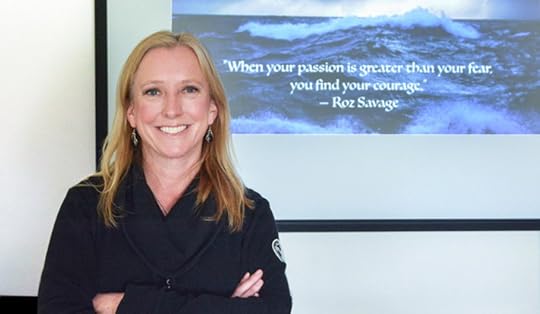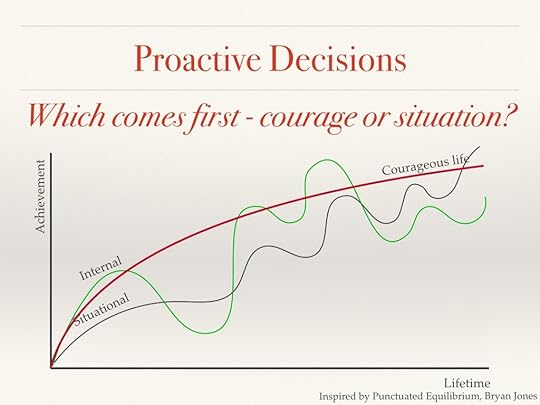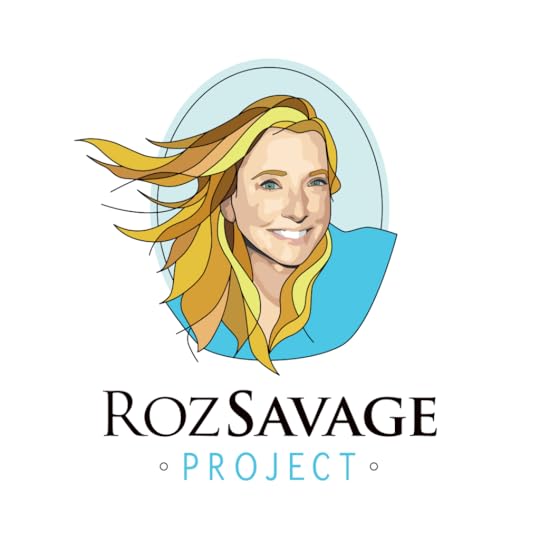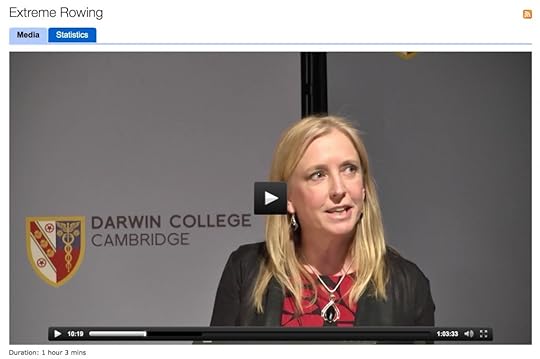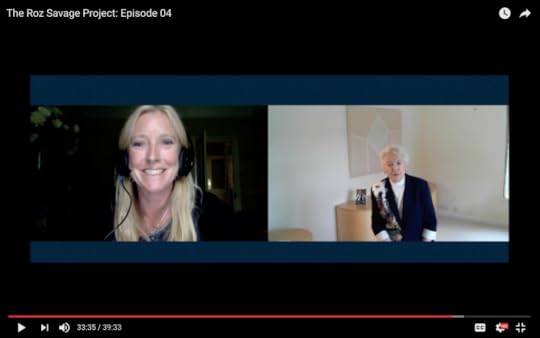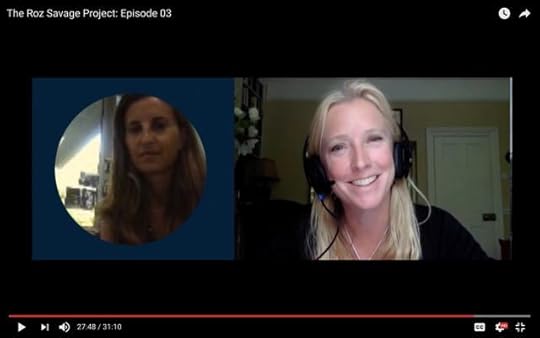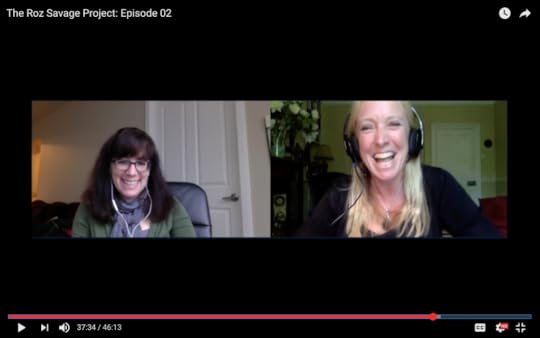Roz Savage's Blog, page 26
March 2, 2017
The Art of Living Courageously Week 7: Courage and Truth
When I put this syllabus together last summer, I had no idea that truth would be such a topical subject, but as it turns out, truth and lies are much on people’s minds at the moment – check out this ad from the New York Times, aired during TV coverage of Sunday’s Oscars ceremony.
(And almost immediately parodied by Stephen Colbert – with a font change rather annoying to the pedants amongst us.)
My slideshow for this week’s class is here.
The Courage to be Truthful to Others
My students and I took this cheap-and-cheerful quiz to find out how truthful we are, which gave rise to a discussion about when we draw the line between good manners, white lies, and dishonesty.
One of our readings, a lecture by Michel Foucault called The Courage of Truth, introduced us to the concept of parrhêsia: telling the whole truth, hiding nothing of the truth, telling the truth without hiding it behind anything, while being aware that speaking this truth will carry consequences. This is certainly a high standard of truth – and it is always and everywhere desirable?
For example, what would have happened if the Gies family had told the truth while they were concealing the Frank family from the Nazi regime? Does an unjust regime justify the telling of lies? We thought so.
In an interesting article here, Gerald Dworkin posits a number of situations in which he believes lying would be justified. I found it difficult to contradict his view – see what you think.
 Even the ninth commandment, “thou shalt not bear false witness”, originally related only to giving testimony in a court of law, rather than to all situations.
Even the ninth commandment, “thou shalt not bear false witness”, originally related only to giving testimony in a court of law, rather than to all situations.
It seems there is a spectrum of situations, and a spectrum of lies, and certain combinations would seem to justify making statements that are less than fully honest. A critical factor seems to be whether the lie is self-serving, or is told with the sincere intention of protecting the innocent (although paradoxically a lie told to incriminate the guilty does not seem justifiable).
Personal Truth
So far we’ve been talking about factual truth, which has an objective quality. In the class we also covered personal truth, which is subjective but real nonetheless, and discussed the possibility that we might be less than courageous in expressing our feelings or revealing ourselves to others.
Of course, the way we choose to express our feelings is relevant – it can be done in a constructive way, or a destructive way. We practiced Non Violent (or Compassionate) Communication, which goes as follows:
Observation: factual description of event, keeping it clean and emotion-free
Feelings: what emotions we experienced, or are experiencing as a result of the event
Needs: what emotions we would prefer
Request: what action the other person could do to help satisfy our needs, making it a genuine request, not a demand, i.e. with no attachment to their response – they are free to say yes, no, or make a counter-offer.
It might seem a bit clunky, but can be helpful in delicate interpersonal situations. Probably not so effective in diplomatic contexts (“I’m feeling really upset that you invaded Poland”).
And for those courageously committed to rigorous truth-telling, see Brad Blanton’s Radical Honesty.
Lying to Ourselves
We tend to be aware of it when we lie to others (or at least you will be after reading this blog post!). But we don’t always notice that we are lying to ourselves. For better or sometimes for worse, it is a rare person who sees the world as it really is. We all have our blind spots, and we will edit, distort and delete reality to fit to what we have already decided about the world – and ourselves.
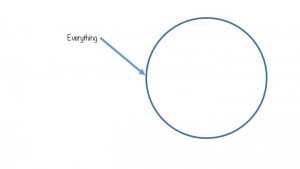 Here is how I picture it. There is a vast realm of information in the Universe. When you think of all the things that there are to be known, even just on our planet, it is mind-boggling – far more than one individual could hope to assimilate in one lifetime. Physiology, psychology, botany, zoology, chemistry, physics, history, geography, oceanography, mathematics, technology, astronomy, architecture, literature, music, art…. The list is endless.
Here is how I picture it. There is a vast realm of information in the Universe. When you think of all the things that there are to be known, even just on our planet, it is mind-boggling – far more than one individual could hope to assimilate in one lifetime. Physiology, psychology, botany, zoology, chemistry, physics, history, geography, oceanography, mathematics, technology, astronomy, architecture, literature, music, art…. The list is endless.
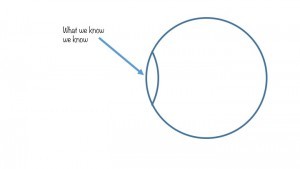 So out of that vast realm, there is a tiny sliver that is what we know we know – who we are, who our family is, how tall we are, where we went to school, what our favourite colour is, and so on.
So out of that vast realm, there is a tiny sliver that is what we know we know – who we are, who our family is, how tall we are, where we went to school, what our favourite colour is, and so on.
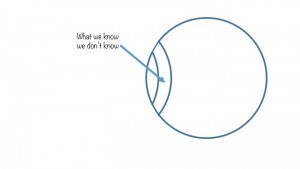 Then there is a larger sliver of what we know we don’t know. I know that Mandarin Chinese is a language, but I have no idea how to speak it. I know that molecular biology exists, but what I know about it could be written on the back of a postage stamp. I know that my digestion works, but I’m extremely vague as to how. And so on.
Then there is a larger sliver of what we know we don’t know. I know that Mandarin Chinese is a language, but I have no idea how to speak it. I know that molecular biology exists, but what I know about it could be written on the back of a postage stamp. I know that my digestion works, but I’m extremely vague as to how. And so on.
And there is what we don’t know we don’t know – the vast bulk of the information available to be known in the whole Universe (and possibly other Universes too – who knows?). This is such an exciting area to imagine. Wow! So much stuff we don’t even know we don’t know! So much stuff still to discover!
Occasionally something from this magical, mysterious realm will break through into our everyday reality, disrupting our notion of what we thought was possible. For example, if I saw someone successfully practicing telekinesis, moving an object purely through the power of thought, that would blow me away. It would disrupt everything I thought I knew about the laws of physics (admittedly not very much) and make me ponder – if that can really happen, what else that I thought impossible could actually be possible?
I call this a disruptive moment, when we become aware of something happening beyond the veil of what we thought we knew to be real. To experience such a moment can be scary, but I prefer to tell myself that it is fascinating. It cracks open a whole new domain of possibility to realise that we humans are not even close to knowing everything that there is to be known.
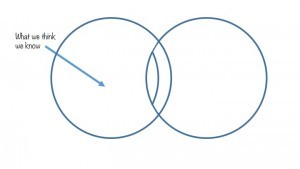 There is another area that we need to consider, and be wary of – what we think we know. Into this area fall many religious beliefs, dogma, superstition, gossip, rumour, opinions, and a whole load of scientific findings that we think are facts, but only because they haven’t been disproved yet.
There is another area that we need to consider, and be wary of – what we think we know. Into this area fall many religious beliefs, dogma, superstition, gossip, rumour, opinions, and a whole load of scientific findings that we think are facts, but only because they haven’t been disproved yet.
This is a dangerous area, because when we think we know something, it can blind us to an alternative that may be more true than the thing we think we know. We tend to be uncomfortable with ambiguity, so we don’t like holding the possibility that this and that could be true. We prefer to decide between this or that, reducing our options to a certainty that may or may not be grounded in fact. When we are sure of one thing, we close our eyes to its opposite.
We used to be sure the world was flat, and that the Sun went around the Earth. Heaven and hell used to be as real to Christian people as their daily lives. I used to be certain that money would buy happiness. We’re not always right. We don’t always choose the right story, and when we’re “sure” of one story, we don’t even consider that our truth may not be true.
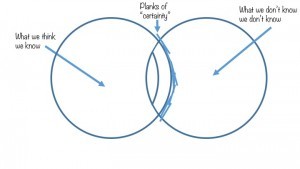 Every time we plump for one option and exclude opposing options, we put a plank between ourselves and the truth. The more incorrect beliefs, stories, and assumptions we have, the more planks we lay down, until the truth is all but obscured. The planks make us feel safe, because we have created a comforting cocoon of certainty in our lives. We are not troubled by disruptive moments from the realm of the unknown, because we are sure that we know what we know and that it is correct. We have wilfully blinded ourselves to the potential discomfort of not-knowingness.
Every time we plump for one option and exclude opposing options, we put a plank between ourselves and the truth. The more incorrect beliefs, stories, and assumptions we have, the more planks we lay down, until the truth is all but obscured. The planks make us feel safe, because we have created a comforting cocoon of certainty in our lives. We are not troubled by disruptive moments from the realm of the unknown, because we are sure that we know what we know and that it is correct. We have wilfully blinded ourselves to the potential discomfort of not-knowingness.
This phenomenon is all the more powerful when an entire culture has blinded itself to the truth. We are all complicit in the reassuring lie, and any person who draws attention to the lie risks being ridiculed or cast out (see Margaret Heffernan’s illuminating TED Talk on the dangers of wilful blindness). So we see entire swaths of humanity conspiring in denial that climate change is real, or that overpopulation is unsustainable, or that we can never win the war on hunger.
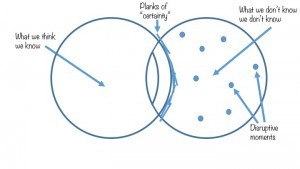 But if we really want to know the truth, we need to take the planks away. We need to be open to the disruptive moments that reveal an erroneous story. They are bright rays of light that suddenly shine out from the dark domain of what we don’t know we don’t know, piercing the planks and striking our perception. It takes courage to embrace the disruptive moments rather than nailing down another plank of ignorance to block the ray of light, but it is vital to find that courage if we want to see reality as it is, not as we would like it to be.
But if we really want to know the truth, we need to take the planks away. We need to be open to the disruptive moments that reveal an erroneous story. They are bright rays of light that suddenly shine out from the dark domain of what we don’t know we don’t know, piercing the planks and striking our perception. It takes courage to embrace the disruptive moments rather than nailing down another plank of ignorance to block the ray of light, but it is vital to find that courage if we want to see reality as it is, not as we would like it to be.
So don’t get too attached to your reality. Be open to those disruptive moments, when a different reality breaks through. Don’t ignore them because they don’t fit with what you think you know to be real. Expand your awareness. Be open to other people’s “truths”, because they might be closer to the reality than yours are. Keep an open mind, but not so open your brains fall out.
Have the courage to reject the reassuring lie, and seek the truth.
Podcast:
As usual, Vic and I have a chat about the topic of the week in our podcast.
YouTube iTunes RSS (Android users can enter the link into their podcast client and subscribe directly)
And reminder that the slideshow is here.
Other Stuff:
True to Ourselves: an interesting additional perspective on truth. Last night I was on a panel discussion at a Leaders & Daughters event for EgonZehnder, and one of the speakers, Lucy Kellaway, a self-confessed “sarky journalist” for the Financial Times, made a challenging point. In response to another panellist suggesting that we should be our authentic selves at work, she said, “Which self? I have about 150 selves!” And went on to say we can’t be authentic at work, because that’s not how it works.
What do you think? Are you your authentic self at work? If not, why not, and would you prefer to be?
Yale News: There was a nice article in the Yale News this week about my courage class at Yale. Check it out here. With thanks to Susan Gonzalez.
February 23, 2017
The Art of Living Courageously Week 6: Courageous Decision-Making
This week is really the crux of the class, because courage is all about the choices we make as we go through life. As far as we know (although we’re learning more all the time about animal intelligence), humans are the only creatures who will knowingly put themselves in danger – physical danger, danger of failure, danger of loss of reputation or friendships – in service to some higher purpose. And that is what this week’s class is all about. And this week’s podcast. And this week’s slideshow.
Proactive Decisions and Reactive Decisions
The choices that I’m most interested in are those choices that we make voluntarily to put ourselves into a challenging situation. I call these proactive choices, which are like setting a course for a far shore, while reactive choices are more about weathering a storm that life throws at us. The latter can also draw forth our courage, for sure, but the emphasis of my course is on creating a courageous life, rather than reacting with stoicism to the vagaries of fate, hence my enthusiasm for proactively seeking out challenge rather than relaxing into ease.
 However, let’s have a quick word about reactive decisions, as they affect us all at some point.
However, let’s have a quick word about reactive decisions, as they affect us all at some point.
Reactive Decisions
(derived from Rushworth Kidder’s article – see reading list: GLBL252 Courage Syllabus)
The first, simpler kind of reactive decision is Right vs Wrong, or moral temptation. And you already know what to do about those. Wrong may be easier, but right is always, well, right.
The trickier reactive decisions are the ethical dilemmas, of Right vs Right, when you have a clash of values such as:
Truth vs loyalty
Individual vs community
Short-term vs long-term
Justice vs mercy
How do we choose which value takes precedence? Over the course of history, philosophers have come up with various ideas:
Ends-based thinking (utilitarianism, teleological) – Greatest good to the greatest number
Rule-based thinking (Kantian, deontological) – If everybody acted as I am about to act, would that serve the greatest good?
Care-based thinking (the Golden Rule) – Do unto others as you would have them do unto you
But even then, does one system always work best? Maybe you have a system that you naturally default to, but none of them can work as a one-rule-fits-all method for solving your moral dilemma.
I wish I could give you a quick and easy answer on this one, but philosophers have been arguing over them for millennia, so it would be presumptuous of me to try to. The best I can suggest is to unpick which values are involved in the dilemma, and see which values are most important to you. (See Week 4 for the values evaluation tool.)
Proactive Decisions
Ah, now we get onto the decisions that really fascinate me – how do we proactively craft a courageous life? I realise that there may be people reading this who are frowning at this point, because life is already asking more of them than they can stand. Why on earth would you want to make life even harder for yourself?
At the risk of sounding like an over-privileged inhabitant of the developed world – which, let’s face it, I am – what I’m talking about here is what happens when we have a choice between living a rather mushy, safe, ordinary life, or deciding that we want to do more, be more, really stretch ourselves to evolve emotionally and spiritually. I hope that this is the choice more likely to be facing my students here at Yale.
Given what Anaïs Nin says – that life shrinks or expands in proportion to one’s courage – do we build our courage first? But isn’t it circumstances that challenge us and invite us to grow our courage?
After giving it some thought, and looking back over my own experience, I believe that it is a dance between the two. I had to have the ambition to live more courageously (created when I did the obituary exercise) which then led to an audacious idea (rowing across oceans to raise environmental awareness). The rowing voyages then presented me with challenge after challenge that forced me to expand my courage further.
And now I’m back in the stage of having courageous ambition, and waiting for life to catch up with me by throwing me a huge scary challenge again.
(I should be more careful what I wish for.)
Generating Opportunities for Courage
What can we do to prompt life to give us a challenge? After all, if this new project is going to elicit our courage, it has to be something that we feel really passionate about, and we can’t get passionate about just any old thing. It needs to mesh with our values and priorities if it is really going to set us on fire.
So we need to generate options until we find an option that we fall in love with so much that we’re willing to commit to it in the sense that we will stop at nothing to make it happen. We want to find our calling – the thing we can’t not do.
It has been said that we may not have free will, but we have free won’t. The idea is that we don’t have completely unfettered ability to create whatever we want in our lives – we will always be to some extent preconditioned by our past and present circumstances – but we do have the freedom to choose from the options available to us. In other words, when faced with a future containing an infinite number of paths, we need to start crystallising a manageable number of paths from which we can choose the one that really excites us.
I believe that having the courageous ambition starts that process. We get curious. We start talking to people, reading books, seeking out films that inspire us. We don’t need to have any particular agenda at this point, other than following our curiosity to see where it will lead.
Themes will start to emerge. Some ideas will appeal and we note them down. Other ideas appeal less and we discard them. This process can take a frustratingly long time, but hey, you’re crafting a courageous life here, and if it was easy everyone would be doing it.
And eventually, gods willing, there is the lightbulb moment when we hit on The One, the project that lights us up, the project that has us bouncing out of bed in the mornings eager to spend the day doing whatever we can to get closer to our goal, the project that will ignite our courage and all the other resources that we need to make our dream come true.
Simple as that.
Podcast:
As usual, Vic and I have a chat about the topic of the week in our podcast. Apologies for the lack of video in the first 15 mins – Skype was not our friend when we recorded. The video comes back later on, so you can see our happy smiling faces.
YouTube iTunes RSS (Android users can enter the link into their podcast client and subscribe directly)
Other Stuff
I was back in the UK a couple of weeks ago to give a lecture at Darwin College, Cambridge. The lecture is now available online.
December 23, 2016
Women of Courage #4: Dame Stephanie Shirley – A Life Worth Saving
“I’m only alive because so long ago, I was helped by generous strangers… I decided to make mine a life that was worth saving.” — Dame Stephanie Shirley
YouTube iTunes RSS (Android users can enter the link into their podcast client and subscribe directly)
Dame Stephanie Shirley is, by any standard, an over-achiever. Tech entrepreneur, feminist, visionary, multi-millionaire (self-made, and maker of 70 more), mother of a severely autistic son, passionate philanthropist. She has, as she puts it, “lived densely”.
Even now, at the age of 83, she still projects health, vigour and energy. That she has lived so well and achieved so much is, I’m convinced, a direct result of her inner narrative that her life should prove to be worth saving, as if she had to prove to the strangers who helped her flee her native Germany before the outbreak of World War II that their efforts – in some cases, their sacrifices – should not have been in vain.
As a German Jew, she could have lapsed into survivor’s guilt, or resented the loss of her childhood, or grieved over the disruption to her family relationships. But she didn’t. She chose a different attitude, a much more empowering and positive attitude.
Which is not to say that she is superhuman. At one point, overwrought by the pressures of a young company with an uncertain cashflow, and exhausted by the challenges of rearing an autistic and sometimes violent son, she collapsed with a nervous breakdown. She said that coming back to work after her breakdown was the hardest thing she has ever done. But once again, she found the courage – or the stubbornness, she might say – to do it. She refused to be beaten by her circumstances.
I found my conversation with Dame Stephanie tremendously inspiring. I am sure you will too.
Please check out Dame Stephanie’s entertaining and insightful TED Talk: Why Do Ambitious Women Have Flat Heads.
And her book, Let IT Go.
Great quotes from Dame Stephanie Shirley:
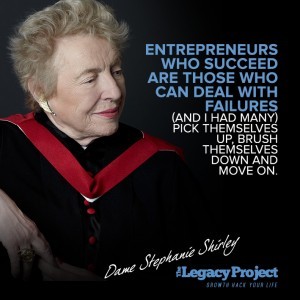
Dame Stephanie
“Even in the blackest moments of despair there is hope, if one can find the courage to pursue it.”
“[I have learned that] few things in life are as solid as they seem; that tomorrow will not always resemble today; and that wholesale change, though often terrifying, is not necessarily synonymous with catastrophe.”
“The art of surrender is, I am convinced, a key to many kinds of success – and fulfilment. And many lives are limited by a failure to master it.”
“We waste too much time being afraid, when what we should really fear is wasting time.”
Other Stuff:
This is the last in our mini-season of podcasts, Women of Courage. Plans are afoot for a new podcast next year, still under the Roz Savage Project umbrella, in which Producer Vic and I discuss the affairs of the day through the lens of courage. The episodes will be very approximately guided by the themes of the weekly seminars I’ll be leading at Yale’s Jackson Institute for Global Affairs, which start on 17th January 2017. Stay tuned!
The Talisker Whisky Atlantic Challenge is underway again. Please give the crews your support, as it will mean a lot to them. I know it meant a lot to me!
It’s my birthday today! No problem if you forgot to send me a ridiculously generous gift – you can instead make a donation to an ocean-related organisation, which would make me equally happy. If you don’t already have an ocean nonprofit of choice, please support Oceana.
I’m off tomorrow to spend Christmas with my dear old Mum. Wishing you a very merry Whatever-You-Celebrate, and all the very best for an amazing 2017. See you on the other side of New Year!
xox
Roz
December 16, 2016
Women of Courage #3: Paula Escobar Chavarría on Changing What is Just in Front of You
“I want to encourage people to follow their path and to see whatever they can do, change what is just in front of you. This project has had an enormous impact, and I thought it was just a small thing to do. I would encourage women to think what is in their everyday life and what can be done to make life for women better.” — Paula Escobar Chavarría
YouTube iTunes RSS (Android users can enter the link into their podcast client and subscribe directly)
One of my colleagues from the Yale World Fellows Program class of 2012 decided to take a stand against our looks-obsessed culture. Paula Escobar Chavarría is the editor of the magazine that accompanies El Merurio, Chile’s foremost newspaper. In 2014, she decided on a new policy for the magazine: they would use no photographs that depicted underweight or under-age models, nor would they permit digital alterations to images. They would also not publish fad diets.
There could have been a lot of resistance. Post-production alterations to images had become so much the industry norm that few photographers would feel comfortable with the new policy. Models would now have to bring a doctor’s note, verifying their age and body mass index (BMI), and around 90% of models would not meet the new criteria.
But Paula was a smart operator, and got all the relevant individuals on board before announcing the policy, so it was agreed relatively smoothly.
Paula felt that it was her responsibility to use her position of influence to fight back against the industry standard that was creating such devastating side effects, particularly among young women, in terms of poor body image leading to eating disorders and lack of self-esteem. As a mother of two daughters and a son, she cared enough to take a stand.
Paula Escobar Chavarría quotes:
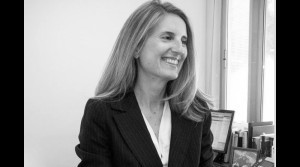
Paula Escobar
“For me journalism is more than work, it is a vocation, my metier. From the beginning my approach has been to be as honest and fair and accurate as possible …. We have to be ethical and independent and truthful.”
“We have this idea like we are a guest in this world that belongs to men. So we have to be perfect so as not to be thrown out of this world. We have to be perfect in our home, our jobs, our bodies. You can’t be courageous and bold and an explorer. You’re very cautious and trying to be perfect. I don’t know who put this awful idea in our heads because perfection does not exist. And this idea only applies to women. Men can be fat and bald and feel great with themselves. There is nothing in society saying they have to be thin and good-looking. They have the freedom to whatever they want, to be the leaders they want to be… that is something we have to change for the next generation. Every generation has put another flag in this man’s world. We need to carry on doing that. And embrace our mistakes and our errors.”
“We women should have more solidarity between us. Sometimes you feel this sense of competition between women. The worst critics and the most painful ones come from women to other women in power. Politicians, colleagues. One thing we can start changing is to have more solidarity, and to advocate for other women. Speak up for other women if they are being criticised behind their backs. Let’s feel that we are all in the same boat. It’s not a fight against men, it’s a fight against stereotype and against this society that has put so many restrictions against women throughout the ages. Be the advocate, not the competition.”
“You have to love what you do. And when you love it you will be great, and will make that profession better.”
Other Stuff:
The Huffington Post has released this video about my story. Enjoy!
I will be giving a lecture on “Extreme Rowing” in Cambridge on 10th February. It would be great to see you there!
December 9, 2016
Women of Courage #2: Alex Leviton on Ease-Challenge-Stress and Patting the Pit Bull
“There are three ways to approach everything in your life – from ease, challenge or stress. In the US we go from ease to stress a lot, but the courage lies in challenge…. When people bounce from one side to the other, they miss the change to find their own courage.” — Alex Leviton
YouTube iTunes RSS (Android users can enter the link into their podcast client and subscribe directly)
There are so many fabulous themes and practical tips in this conversation with my friend of 5 years, Alex Leviton, that it was hard to pick just one for this blog post. This idea of ease/challenge/stress is my favourite, but I do urge you to check out the full podcast for lots more great stuff.
A life of ease may sound lovely but, as Theodore Roosevelt said:
So, if we want to be remembered, we obviously need to get off the couch and out of our ease-zone. And in any case, in this hectic 21st-century, ease increasingly seems like an impossibility. Most people’s lives are taken up with kids, commuting, work, socialising, gym, shopping, cooking, cleaning, volunteering, and occasionally some sleeping. Ease doesn’t get much of a look-in, and stress seems to be the order of the day.
In fact, stress seems to be celebrated almost as a badge of honour. We might compete – with our friends, spouses, colleagues – to determine who is the busiest and most stressed, as if busy-ness and stress somehow reflect on how important, indispensable, and popular we are. And it starts early – I’ve heard teenagers dramatically sigh, “I’m sooooo stressed” about the pressures of schoolwork.
We need to be careful what we tell ourselves about our busy-ness. The story that we tell ourselves about our lifestyle has a direct impact on our health. Chronic stress creates a whole cascade of negative consequences – high blood pressure, poor digestion, irritability, depression, headaches, addiction, fertility problems, and a depressed immune system which in turn leads to further problems.
So when you find yourself running flat out on the hamster wheel of stress, pause, and ask yourself a couple of questions:
Q1: Is all this activity really necessary? Can I delegate/simplify/delete this task?
Q2: Can I reframe this busy-ness so that it feels like a challenge, rather than stress?
To expand on that second question – how will you know the difference between stress and challenge? Stress feels hectic and breathless, as if you’re being pulled in twelve different directions at once and none of them are your direction. Challenge feels fun, exciting, and purposeful. You feel grounded and powerful, making conscious choices to do the things that truly matter to you and the people you love.
It may be that your answer to Q1 is that all your tasks are important, and that’s fine. Your pause-and-review may result in no observable difference. The crucial point is to reframe your internal story to put yourself back into the driving seat of your life, to get clear on why you choose to include all these activities in your life rather than blundering blindly onwards.
Check out Mihaly Csikszentmihalyi’s model of mental states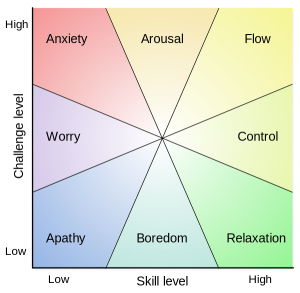 , and consider how it applies to your life. Which segments are you spending your time in? Which segments would you like to spend your time in? How will you select and prioritise your activities accordingly?
, and consider how it applies to your life. Which segments are you spending your time in? Which segments would you like to spend your time in? How will you select and prioritise your activities accordingly?
It’s up to you, of course, but as a clue I shall wish you a flowing, controlled, and relaxing week!
And to help you unwind, take a few minutes to watch Alex’s hilarious comedy debut! (contains adult themes)
RSS (Android users can enter the link into their podcast client and subscribe directly)
Great Alex Leviton quotes:
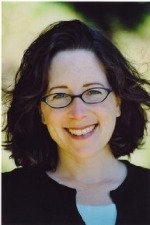 “Women should not downplay our courage as much as we do.”
“Women should not downplay our courage as much as we do.”
“That’s where courage comes from – when people dance in those levels of vulnerability.”
“What have you done that feels courageous? Wherever you feel vulnerable, where can you take one step towards challenging yourself in that aspect? No matter what it looks like to anybody else, that’s courage.”
“All people have to do is go one step at a time. Take one more step, and then never ever stop.”
December 2, 2016
New Podcast Mini-Season Featuring Women of Courage
Hello, hello! Yes, I am still alive, and no, I haven’t dropped off the face of the planet – although there have been some moments during the heated political campaigns over the summer in both the US and the UK when life on another planet seemed quite appealing.
And I’m back with a new podcast. We’re doing a mini-season at this point, with just four episodes to take us through the last month of 2016. We kick off with the inspiring Dilys Sillah.
To subscribe to the new podcast, creatively entitled The Roz Savage Project, follow this iTunes link. That version is audio only. And by way of a change, thanks to the wonderful technological know-how of Producer Vic, we now also have an all-singing, all-dancing, amazing technicolour VIDEO VERSION ON YOUTUBE!
If you’re not already signed up to my mailing list and want to be sure to hear about future episodes, please sign up for my newsletter. (As an fyi, I’ve recently switched from Infusionsoft to Mailchimp to distribute my newsletter, so if you become aware of any glitches, please let me know.)
Okay – over to a few words about Dilys, followed by a quick update on my news.
DILYS SILLAH – “I Don’t Do Victim”
“I can’t think of anything I’m actually afraid of. I think the reason is that, as a Christian, I draw a lot of strength and confidence from my faith, and when I feel fear or uncertainty I pray. And that’s what gives me the courage to be bold, to broaden my shoulders and say I can do this.”
Dilys Sillah, a British-born Ghanaian, calls her faith her “secret weapon”, because it is what enables her to keep on going with her work raising awareness around child abuse, rape, domestic violence and sexual exploitation through her charity, Who Will Hear My Cry.
Her work started when there was a rape in Ghana that hit the news because the alleged perpetrator was a celebrity. A lot of people were blaming the victim, and Dilys felt that was wrong.
Says Dilys: “I’ve always had a problem with people being bullied. I will always be the one who will stand up and say that’s not right. When I was in school, I was bullied. I was a bit of a weird child. There was always something within my gut that made me believe that I am somebody. But at the same time things happen to you in life that dilute that self-message. So at school I was never the child who was invited to anyone’s house for play date, or to anyone’s birthday party. But there was still that voice in me that said that you are somebody, that you are special. It is such a life-changing way of thinking.”
When the rape happened in Ghana, Dilys found her moment to step into being the self she was born to be. “If I don’t stand up for these people, who will? It’s not about the next person. It’s about you. What are you doing? It shifts from being about you to being about them. And that has helped to toughen me up.”
I know you will enjoy listening to my conversation with Dilys. You can hear the strength and her courage in her voice when she talks about, not just her faith and her work, but other times in her life, too, when she has refused to “do victim”, but has broadened her shoulders and stood up for what is right.
Top tip: if you need a quick courage boost, do as Dilys does and broaden your shoulders – literally. Stand up a bit straighter and puff out your chest while you put your shoulders back. It will make you feel instantly more confident!
Great Dilys Sillah quotes:
“Just the fact that that seed is within you, your actions are what are growing to grow that seed for it to bear fruit.”
“It’s nobody else’s job to see how wonderful you are. That’s your job. That’s your responsibility. The reason that you’re feeling so despondent is that you’ve made it somebody else’s responsibility.”
“I will not give you permission to undermine me or disrespect me.”
“There is no such thing as small courage. What may be tiny to me may be a huge thing to you. We should celebrate all our successes.”
Other Stuff:
I had a fabulous summer in Ireland working on my next book. When I say “fabulous”, I don’t mean the weather, which was typically Irish. As the saying goes, you know it’s summer in Ireland because the rain gets warmer. But I didn’t go there for the weather, I went there for solitude and lack of distractions, which was exactly what I got. And thoroughly enjoyed the writing. More news about that next week. Huge thanks to Georgia and Stan Miller for lending me their lovely – and very remote – cottage.
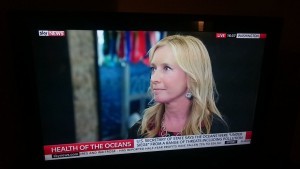 As you’ll know if you get my newsletter, in September I was on the East Coast of the US for a couple of corporate speaking engagements and also the great honour of speaking at Secretary of State John Kerry’s Our Oceans conference. I was the first speaker after John Kerry, and the warmup act for Barack Obama – video online here. Such a privilege to share the stage with people who have done so much for the world’s oceans.
As you’ll know if you get my newsletter, in September I was on the East Coast of the US for a couple of corporate speaking engagements and also the great honour of speaking at Secretary of State John Kerry’s Our Oceans conference. I was the first speaker after John Kerry, and the warmup act for Barack Obama – video online here. Such a privilege to share the stage with people who have done so much for the world’s oceans.
The other big news is that I am off to Yale to teach a course on COURAGE at the Jackson Institute for Global Affairs. I will be there from January to May 2017. I am very much looking forward to the experience, and to reconnecting with my friends at the wonderful School of Forestry and Environmental Studies. Thanks to all at Yale who have invited, guided and supported me thus far – I look forward to working with you.
Stand by for more news next week!
July 12, 2016
Wishing You A Fabulous (And Courageous) Summer!
Hi folks! A quick note to let you know that, as of tonight, I’m going offline and off on retreat to write my book. I’ll be back in late August(ish).
I’m feeling excited about it, in the same way I used to get excited about my ocean rowing voyages – a sense of tingling potential, mingled with a knot of apprehension at leaping once more into the unknown.
And, just like the rowing, I’m telling myself not to get overwhelmed at the enormity of the challenge ahead, but just to take it one chapter, one page, one word at a time. And to keep on going until I hit the other shore, aka the end of the book.
I’ll miss you. I hope you’ll miss me. Have a fabulous summer and I’ll see you on the other side!
Hugs
Roz x
P.S. If you want some reading matter over the summer, I’m taking only one book with me on my retreat – Finding our Way, by Margaret Wheatley. If you’d like to read it too, we can compare notes when I get back!
July 7, 2016
The Courage To Be True To Yourself
“A Buddha is a Buddha, a Krishna is a Krishna, and you are you. And you are not in any way less than anybody else. Respect yourself, respect your own inner voice and follow it.” — Osho
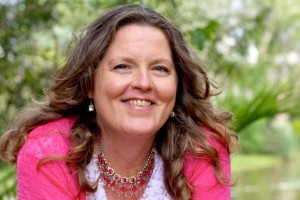
Bronnie Ware
According to Bronnie Ware, a hospice nurse and author of “The Top Five Regrets of the Dying – A Life Transformed by the Dearly Departing”, the number one most common regret expressed by the dying is: “I wish I’d had the courage to live a life true to myself, not the life others expected of me”.
Wow. Just think about that for a moment. A heartbreaking proportion of us end up wishing we’d spent our time on this Earth being our authentic selves, rather than conforming to the expectations of others.
It sounds very simple, doesn’t it? “Just be yourself.” Probably most of us have heard that piece of advice more than once. But it’s easier said than done.
By the time we start asking ourselves the deep questions about who we are and what we are here for – typically in our late thirties or early forties – we have so many layers of social conditioning accreted upon us that it is impossible to remember who we are.
Yet it is vital that we do.
Being yourself is the only way to find your life purpose, and aligning with your life purpose is the only way to thrive and find fulfilment. If you’re not being honestly and authentically yourself, you won’t know what things you care about enough to make them worth being courageous for. You need to know yourself, your values, priorities, hopes and dreams, to know what matters enough to you for you to overcome your fears and step up to be your best self.
That isn’t to say that there is just one single path that is in alignment – it’s more about the way you do what you do, rather than the actual thing that you do. There is a whole spectrum of options open to you, some of which are closely aligned, radiating all the way out to not aligned at all.
Once we wake up and start peeling back the layers, it can be a bewildering experience. Having spent more time alone with my own thoughts and my own self than most twenty-first century people get the chance to do, I know it can get quite strange when we are no longer seeing ourselves in relation to other people. I found myself narrating my own story, describing my actions and feelings in the third person, as if I needed an observer, and in the absence of one I had to create one.

Who are you on the inside?
Who are we when there is nobody looking? When we are not somebody’s child, sibling, student, friend, lover, parent? As we peel away these identities, what is left? What is at the centre of the Russian doll?
I found myself suspecting that there might be nothing there at all, or at least, nothing that was uniquely me, but rather, a dollop of vital essence that connected me to everybody and everything else.
How, then, was I to find me? In a way, we are so familiar with ourselves that we can’t even see ourselves because we assume that everybody is like that, feels that way, has those qualities.
So how do we find our unique expression?
In my experience, it is a process of trial and error. It isn’t a cerebral exercise that you can do with pen and paper from the safety and privacy of your home. It’s a messy and haphazard process of getting out there and trying new things, and figuring out which bits work for you and which bits don’t. It’s at least as much a process of elimination as it is of inclusion. You have to try before you buy, actively seeking out new experiences and seeing how they feel to you. Just do it, and then decide which bits to accept or reject.
Some people seem to know their path from an early age – musicians, artists, sportspeople. But we also see people who muddled around, trying on different lives for size. Vera Wang didn’t start designing clothes until she was 40. Julia Child wrote her first cookbook at 50. Mary Wesley published her first novel when she was 70. As George Eliot said, “It’s never too late to be what you might have been”.
The point is to keep on looking, because this is the most important work you will ever do. And you will learn to recognise the signs when you are getting warmer – the feeling of excitement, or heightened senses, or tears of emotion. Watch out for those. Pay attention. Take note.
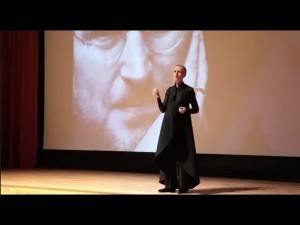
Caroline McHugh for TEDx
We know it when we see other people who have found their calling. As Caroline McHugh says in her TED Talk on “The Art of Being Yourself”:
“Life is large. But most of us don’t take up nearly the space the universe intended for us. We take up this wee space around our toes, which is why when you see somebody in the full flow of their humanity, it’s remarkable. They’re at least a foot bigger in every direction than normal human beings, and they shine…
…They gleam, they glow. It’s like they’ve swallowed the moon.”
When we see those people, we may think to ourselves that we want some of what they’ve got. And we can have it. But there are no shortcuts. There is no point in comparing or envying or copying. Be inspired, by all means, but know that imitating someone else’s path won’t work for you. Following the path of another won’t produce the results you wish for. Mix and match and combine, by all means, but your point of reference must always be internal, not external.
Yes, it can be hard work. But can also be fun, a joy to follow your natural curiosity and see where it takes you. Treat it like a video game where you have to collect gems of wisdom along the path in order to find the hidden treasure. Or picture it like connecting with your inner compass and sensing when you are getting closer to your lodestone. Allow the journey to be as enjoyable as reaching the destination.
This is what it truly means to step into the river of life, to be carried along by its momentum, to relax into its flow.
To quote Oscar Wilde, “Be yourself. Everyone else is already taken.”
Exercise:
Sit down with your journal (or a piece of paper, or an iPad, or whatever your preferred mode of recording your deepest thoughts may be) and think of the times when you felt yourself to be in a state of flow. You may need to go all the way back to childhood days – go back as far as you need to.
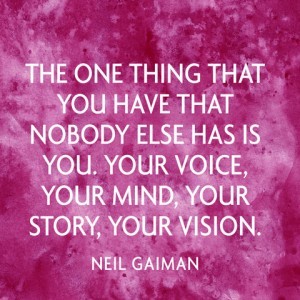 When did time seem to disappear?
When did time seem to disappear?
When did you feel you couldn’t not do something that you love?
When did you feel most happy, and graceful, and grateful, and at one with the world?
If you’ve never felt quite like that, don’t worry. Has there ever been a time when you simply felt happier than usual? What was going on? Break down the experience.
What was it that was meaningful? The people? The physical sensations? The emotions? The surroundings? Something else?
Feel your way back into the memory, and describe as many aspects as you can remember. See which aspects of the memory make you smile. Follow that path, explore that direction.
Think of at least three similar activities that you could try in order to home in on what aspect of the experience it was that really made you come alive.
Then make a plan to try them – and do the plan. Awaken your curiosity! Get excited about finding out who YOU are!
After all, you don’t want to end up as one of those dying people wishing “I wish I’d had the courage to live a life true to myself, not the life others expected of me” – do you?
June 30, 2016
The Courage To Be Your Greatest Self
“I choose to experience the grandest version of the greatest vision ever I had about Who I Am.”
—Neale Donald Walsch, Conversations with God, Book 3
“Who do you think you are?”
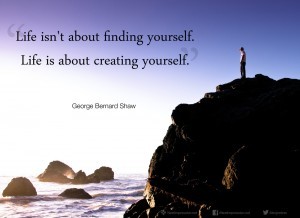 In our culture, that question tends to be confrontational. It implies that the person saying it thinks you’ve stepped out of line, acted too big for your boots, or otherwise contravened some social convention about appropriate behaviour.
In our culture, that question tends to be confrontational. It implies that the person saying it thinks you’ve stepped out of line, acted too big for your boots, or otherwise contravened some social convention about appropriate behaviour.
And yet, taken at its face value, it is the one of the most fundamental questions we can ever ask ourselves. Who we think we are will entirely determine the kind of life that we have, and the legacy that we leave.
From the moment we’re born (arguably earlier, depending on your worldview), we begin to create who we are. We are social animals, and primed to fit in with the tribe or else face solitude and early extinction. And so, like chameleons, we morph to blend with our surroundings.
As Jim Rohn said, “You are the average of the five people you spend the most time with”.
We become putty in the hands of our family, our culture, the world. We quickly learn that some behaviours earn approval, while others incur more negative responses. Psychologists tell us that as early as the age of two or three we have others in mind when we decide how to behave.
By our teenage years we are extremely self-conscious, and often quite willing to pretend to like this or dislike that in order to fit in with the crowd.
Then we start work, which for most of us involves operating within a corporate culture, where certain behaviours are rewarded with pay rises and promotions, while other behaviours send us sliding down the greasy career pole. And so we conform.
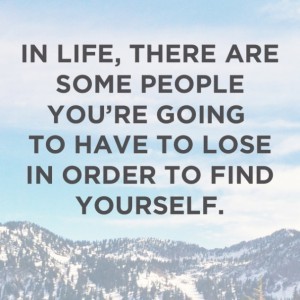 As well as unwittingly absorbing ideas about who you are from those around you, over the years you will have been told may things about who you are, both explicitly and implicitly. As a child your parents may have told you that you are the artistic one in the family, or the intellectual….or, maybe, the one who will never amount to anything.
As well as unwittingly absorbing ideas about who you are from those around you, over the years you will have been told may things about who you are, both explicitly and implicitly. As a child your parents may have told you that you are the artistic one in the family, or the intellectual….or, maybe, the one who will never amount to anything.
You may have been told how to behave, or what values to live by, or how to speak, stand, walk, sit. Much of this advice will be well-meaning, intended to help you fit in and be acceptable and accepted, but bringing up a child so often entails covering up the child, in layers of learned behaviours.
Throughout life the process continues. Some statements you will have agreed with, and taken on board as a piece in the jigsaw puzzle of your self-concept. Others you will have rejected. One reason we reject certain notions is because we aren’t willing to believe positive things about ourselves. Others can see those positives but we choose not to own them. We deflect compliments as being false, or because we suspect that the person paying the compliment has an agenda, or because the compliment implies a greater version of ourselves than we are willing to be.
Yet we’re often all too willing to agree to the negative comments that come our way.
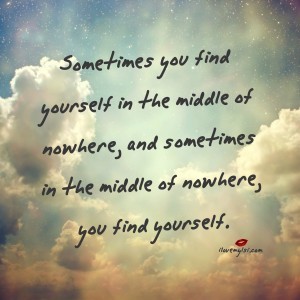 Thanks to our innate negativity bias (meaning that we notice negative remarks significantly more than we notice positive ones), those insults sear themselves into our very being, and we ruminate and repeat and reinforce those negatives, doing ourselves a terrible disservice.
Thanks to our innate negativity bias (meaning that we notice negative remarks significantly more than we notice positive ones), those insults sear themselves into our very being, and we ruminate and repeat and reinforce those negatives, doing ourselves a terrible disservice.
Strangely, there is comfort in believing the stories that limit us. It is tempting to play small, because it’s safer. While we limit our power, influence, and impact, we avoid being noticed, which means we won’t be criticised, and if we fail nobody will see.
To believe in our greater selves requires courage, because then our actions must expand to fill that larger self-concept. It is riskier. We will be seen, and noticed, and commented upon. Those with less courage may try to cut us down to their size because our expansion reminds them of their own fear and smallness and makes them uncomfortable. We need to be big-hearted enough to be compassionate for their smallness, rather than wounded by their criticism.
Do you have the courage to do the work? Are you willing to seek and find your innate greatness?
I urge you to find the courage. Not just for yourself, but because the world needs you to be your greatest self. This is not about ego – this is about you being what you were born to be, about honouring your deepest essence, so that you can serve the needs of our time.
And trust me, your true self is greater than any self you can even begin to imagine.
Exercise:
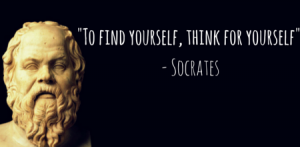 Throughout this week, notice when you are playing small. Here are some things you might want to watch out for:
Throughout this week, notice when you are playing small. Here are some things you might want to watch out for:
You deflect a compliment, rather than just saying, “thank you” and enjoying the moment
You take criticism to heart, rather than seeing it as a gift to enable you to improve (and/or a comment on the critic, rather than you)
You choose not to speak up in a meeting or conversation, even though you’ve got something important to say
You notice self-limiting or negative thoughts crossing your mind, such as “they won’t like me”, “they won’t care”, or “they won’t be interested”
You copy or envy someone else because you wish you were more like them
You don’t dare to ask, in case they say no
You prioritise other people and their projects over yourself and your projects.
For now, don’t even focus on changing these behaviours. Don’t berate yourself, or get frustrated.
Just notice. Write them down, if that helps, and see what patterns emerge. Awareness is the first step. Change will start to happen, without you even trying.
Other Stuff:
The full video version of my interview with Michael Sandler of Inspire Nation is now online. Enjoy!
I’m off to Wales for the next couple of days to speak at a conference in Lampeter. Then Jersey at the weekend for the Sark to Jersey Rowing Race, which started the same year I was born – 1967. I’ll be the guest of Pete and Anne Thomson, who were such an enormous help to me in getting Sedna cleaned up and ready for storage in Antigua in 2006 after I’d rowed the Atlantic. Pete took part in the first ever Sark-Jersey race 50 years ago, and will be racing again on Saturday. I know he’s been training hard. Good luck, Pete!
Speaking of Sedna, if you haven’t checked in on her latest adventure on the Pacific with the Fight The Kraken crew, you can find their latest news here.
June 23, 2016
The Courage to Say No
It can be very hard to say No, especially if we like to please people. Too often, our default is to say a compliant, people-pleasing Yes.
But every time we say Yes to one thing, we are saying No to something else, because we have a limited number of hours in our day, and days in our lives, so when we say Yes to other people’s projects and desires, too often we are saying No to our own projects and desires.
So ask yourself: whose projects and desires are more important to you?
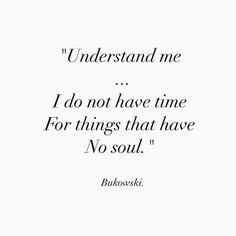 Time is your most precious resource, and it is not renewable. When today is gone, it is gone forever. Be sure that you are spending it the way that you want to spend it.
Time is your most precious resource, and it is not renewable. When today is gone, it is gone forever. Be sure that you are spending it the way that you want to spend it.
There is a story about the world-renowned psychologist, Mihaly Csikszentmihalyi, wishing to interview the educator Peter Drucker for his book on creativity. Drucker, far from being flattered by the request from the great man, rather waspishly responded that he didn’t believe in creativity, he believed in productivity, and if he accepted every interview request that came his way he wouldn’t have time to be productive, so no, he was not willing to be interviewed.
Drucker knew that his own productivity was his priority, so he had no problem saying no, regardless of who was doing the asking.
Often, our Yes is fear-based.
We say Yes to paid work because we don’t trust sufficiently that the Universe will support our Work*. We say Yes because we’re afraid that if we say No we will disappoint people, and they may not like us any more. We say Yes because we are afraid of missing out, not trusting that, if something or somebody is meant to be in our lives, the opportunity will come around and again and again until things are as they are meant to be.
And what is the upshot of all that Yes, and not enough No? We end up exhausted, addicted, depressed, stressed out, angry, frustrated, and ill.
When our mind can’t say No, our body will.
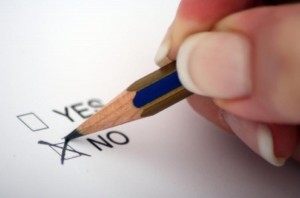 When we don’t do the things that nurture our spirit, but allow ourselves to be pushed and pulled and sidetracked into other people’s projects, we end up paying a heavy price for neglecting ourselves and our souls.
When we don’t do the things that nurture our spirit, but allow ourselves to be pushed and pulled and sidetracked into other people’s projects, we end up paying a heavy price for neglecting ourselves and our souls.
If you don’t yet know what your Work is, it can be easy to say Yes. You can convince yourself that this request might open a door that will help you find your Work. Occasionally, that may be true. So you can keep on saying Yes to everything, and hope that eventually you stumble across the thing that will inspire your life’s Work.
Or you can say No to those alluring invitations, and instead spend your precious time looking into your heart, deciding what you want, and then manifesting it into your life with clarity, intention, and purpose.
Real life is a dance between both, between intention and serendipity. So look to your heart for guidance. If something excites you, say Yes. If not, push aside your inner voice of must and should and ought, and express your desire.
Use your No as an opportunity to reaffirm to yourself what you really want.
“Thank you for the offer/invitation. That sounds very tempting, but right now my priority is to focus on my Work/self-care/etc.”
Be mindful about your Yes and your No, making your choice from a position of wisdom, courage, strength and self-care, and watch the magic happen.
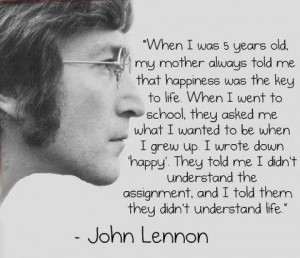 *Work with a capital W is used to denote your soul work for this lifetime, as opposed to work with a lowercase w, which is the job of work that you do for money.
*Work with a capital W is used to denote your soul work for this lifetime, as opposed to work with a lowercase w, which is the job of work that you do for money.
Exercise:
Take some time to meditate or journal on these questions (and if you don’t have enough time, say No to something so you make time!):
Where do I give away my time too easily?
What is stopping me from saying No?
If I had a month of no distractions, how would I choose to spend my time?
Top Tip:
Before you say Yes to anything, ask yourself these five questions:
Is it necessary?
Will it bring greater good to my life or the planet?
Will it fail to happen without my participation?
Do I have the time?
Do I really want to do it?
Your answer has to be ‘yes’ to at least four, including the last one, for you to say Yes.

